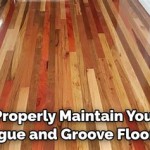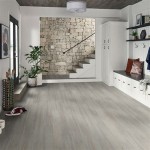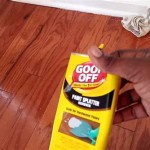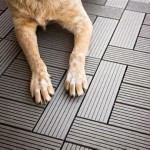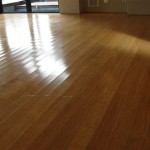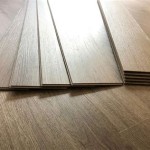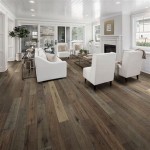Is Vinyl Plank Flooring Safe?
Vinyl plank flooring has become increasingly popular in recent years, offering a durable, stylish, and affordable alternative to traditional hardwood floors. Its waterproof and easy-to-clean nature makes it particularly appealing for busy households and areas prone to moisture. However, with any new flooring material, concerns about safety naturally arise. This article will explore the safety aspects of vinyl plank flooring, addressing common questions and providing a comprehensive overview.
Flammability and Fire Safety
Vinyl plank flooring, like most flooring materials, is combustible. It's essential to choose flooring that meets local building codes and fire safety regulations. While vinyl plank itself is not inherently highly flammable, it can release toxic fumes when exposed to extreme heat. The composition of the vinyl and its backing can influence its reaction to fire. The use of a fire retardant backing can help mitigate the risk of fire spread. Always check the manufacturer's specifications and safety data sheets for detailed information about flammability and fire safety guidelines.
To further enhance fire safety, consider these factors:
-
Proper Installation:
Correctly installing the flooring, ensuring tight seams and adherence to recommended guidelines, can reduce the potential for fire spread. -
Smoke Detectors and Fire Extinguishers:
Maintaining working smoke detectors and having fire extinguishers readily accessible in the home are crucial for fire safety, regardless of flooring material. -
Open Flame Precautions:
Exercise caution with open flames, such as candles and fireplaces, to minimize the risk of igniting the flooring.
Health and Environmental Considerations
Concerns about volatile organic compounds (VOCs) and potential health risks are often raised when discussing vinyl plank flooring. While some vinyl flooring products may contain VOCs, advancements in manufacturing have led to the development of low-VOC or VOC-free options. Look for products certified by reputable organizations such as FloorScore or GREENGUARD, which ensures that they meet strict emissions standards. These certifications provide assurance that the flooring meets specific criteria for indoor air quality.
Here are key points to consider regarding health and environmental factors:
-
Off-gassing:
When vinyl plank flooring is new, it may emit a slight odor due to the release of VOCs. This is typically temporary and will dissipate over time. Proper ventilation during and after installation can help minimize off-gassing. -
Phthalates:
Some vinyl flooring products may contain phthalates, chemicals used to increase flexibility and durability. Certain phthalates have been linked to potential health concerns, so opting for products without phthalates or with low phthalate content is advisable. -
Recycling and Sustainability:
The environmental impact of vinyl flooring is a growing concern. Some manufacturers are introducing recycled content in their products and offering recycling programs for their flooring at the end of its life cycle. Choosing products with recycled content and responsible disposal practices can contribute to sustainability.
Durability and Slip Resistance
Vinyl plank flooring is known for its durability and resistance to scratches, dents, and moisture. These qualities make it a suitable choice for high-traffic areas, kitchens, and bathrooms. However, durability alone doesn't guarantee safety. The surface texture of the flooring plays a crucial role in slip resistance, especially in areas prone to spills or water exposure.
Here's how durability and slip resistance relate to safety:
-
Texture and Finish:
Vinyl plank flooring comes in various textures and finishes. Some have a smooth, polished surface, while others have a more textured appearance. Choosing a textured finish can enhance slip resistance, especially in wet areas. However, overly textured surfaces can be difficult to clean and may trap dirt. -
Anti-Slip Coatings:
Some manufacturers offer vinyl plank flooring with anti-slip coatings to improve traction. These coatings can be particularly beneficial in areas like bathrooms and kitchens, where spills are more likely. -
Maintenance and Cleaning:
Regularly cleaning and maintaining the flooring is essential for preserving its durability and slip resistance. Dust, dirt, and debris can accumulate and create slippery surfaces.
Overall, vinyl plank flooring can be a safe and practical choice for homes and commercial spaces. However, it's crucial to choose products that meet local fire safety regulations, have low VOC emissions, and offer adequate slip resistance. By considering these factors and following proper installation and maintenance practices, you can enjoy the benefits of vinyl plank flooring while prioritizing safety for you and your family.

The Dangers Of Luxury Vinyl Floors Lvt And How You Can Avoid Them Artisan Wood Llc

The Disadvantages Of Vinyl Plank Flooring A Guide Reallyfloors America S Est Hardwood

The Dangers Of Luxury Vinyl Floors Lvt And How You Can Avoid Them Artisan Wood Llc

6 Vinyl Flooring Myths Get The Facts From Our Experts

What I Ve Learned As An Inspector For Luxury Vinyl Flooring Wood Floor Business

Non Toxic Vinyl Plank Flooring Brands The Risks My Chemical Free House

A Beginner S Guide To Installing Vinyl Plank Flooring Dumpsters Com

The Toxic Problem With Vinyl Flooring That No Warned You About

How To Choose The Right Vinyl Plank Deerfoot Carpet Flooring

What I Ve Learned As An Inspector For Luxury Vinyl Flooring Wood Floor Business
See Also
